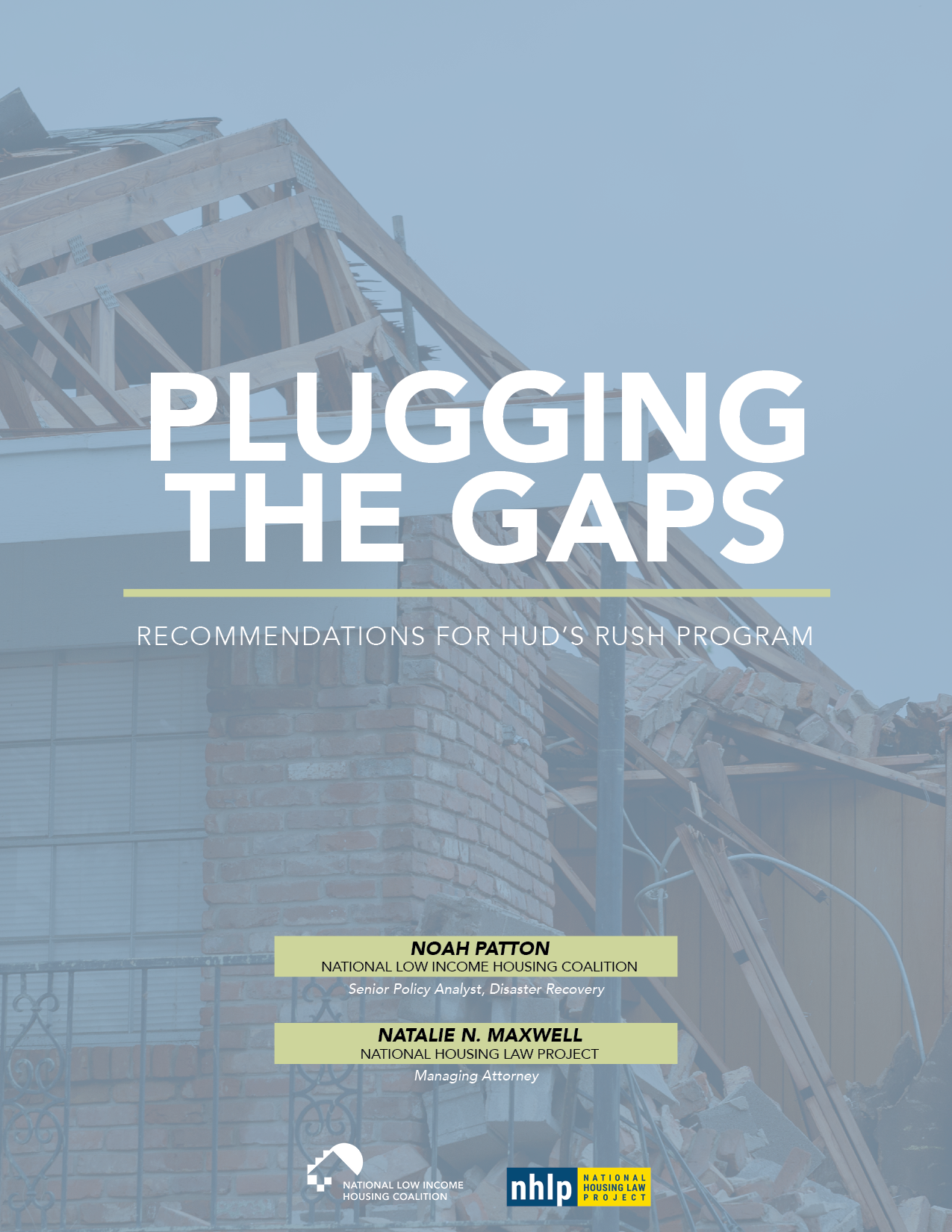NLIHC and the National Housing Law Project (NHLP) released today a report exploring the initial implementation of the U.S. Department of Housing and Urban Development’s (HUD) Rapid Unsheltered Survivor Housing (RUSH) program, a new initiative designed to fill gaps in federal assistance by addressing homelessness in communities impacted by disasters. The report, Plugging the Gaps: Recommendations for HUD’s RUSH Program, finds that while RUSH offers vital support to disaster-impacted communities, initial implementation of the program in Florida was hampered by challenges that must be remedied before future deployment.
Established in 2022, RUSH provides funds to help communities offer outreach, emergency shelter, rapid re-housing, and other assistance to people experiencing or at risk of homelessness who are in a disaster-affected area but who cannot access all services provided by FEMA programs. The program was created following years of advocacy by NLIHC’s Disaster Housing Recovery Coalition (DHRC), which includes the National Housing Law Project and over 900 other local, state, and national advocacy organizations.
RUSH was first deployed in the fall of 2022 to support the response to Hurricane Ian, which decimated the southwest coast of Florida. However, over one year later, funding has only just begun to reach impacted communities, and many of those individuals with the fewest resources who were most impacted by the hurricane continue to experience severe housing instability and homelessness.
RUSH implementation in Florida has been hindered by numerous hurdles, according to the report. These hurdles include a lack of guidance regarding spending deadlines, lack of transparency and information sharing, confusion about RUSH’s relationship to existing assistance programs, and a reimbursement model that does not adequately incentivize grantees to spend RUSH funds in a timely manner.
The report recommends that HUD address these challenges in several ways. For example, HUD should ensure that decisions to allocate disaster assistance do not reinforce pre-existing racial disparities, and the agency should explore alternative ways to ensure equity when deploying RUSH funds. Likewise, the report suggests that HUD provide RUSH funds up front instead of via a reimbursement model to allow for quick implementation of activities, and that the agency impose timing requirements that complement FEMA programs. HUD should also clarify the benefits of synchronizing RUSH and related homeless service activities, ensure that regulatory waivers provided to RUSH recipients are sufficient, and prioritize the creation of detailed guidance on how to access RUSH funds.
Download the report here.

